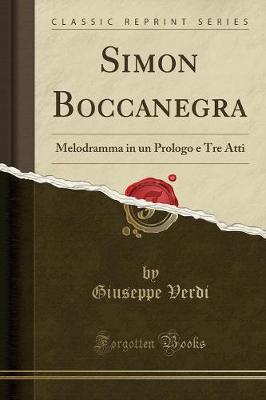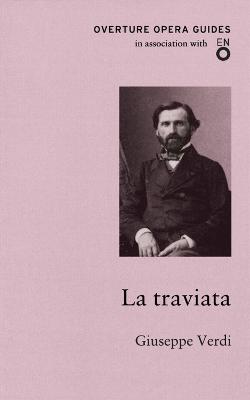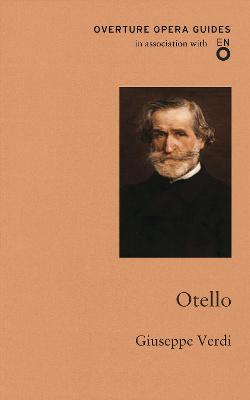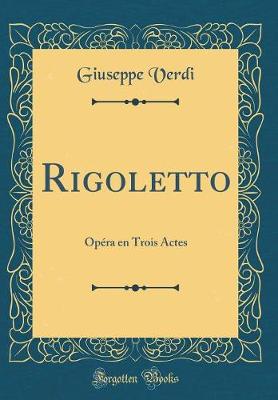Overture Opera Guides
4 total works
Simon Boccanegra: Melodramma in un Prologo e Tre Atti (Classic Reprint)
by Giuseppe Verdi
Published 1 February 1989
Verdi's Simon Boccanegra exists in two versions: that of the 1857 original and that of the 1881 revision. The texts of the libretto of both versions are included in this guide, with a number of essays which focus on the differences between the two. Rodolfo Celleti provides the story's historical context, setting the events of the real life of Simon Boccanegra against the unification of Italy, which formed the political backdrop to the composition of both versions of Verdi's opera. James A. Hepokoski gives a detailed synopsis of the 1881 score, and indicates the ways in which Verdi radically revised the original and reworked it to fit his late style. Lastly, Desmond Shawe-Taylor discusses Verdi's attitude to his singers, and the critical reception that performances of both versions of the opera received.
This edition contains over twenty illustrations, a thematic guide and the texts of the libretti in the original with literal translations. There is also a bibilography, discography and DVD guide, together with a list of websites that will allow the reader to explore the opera further.
Contents: An Historical Perspective, Rodolfo Celletti; An Introduction to the 1881 Score, James Hepokoski; Verdi and his Singers, Desmond Shawe-Taylor; Simon Boccanegra: Libretto by Francesco Maria Piave with additions by Giuseppe Montanelli and additions and alterations by Arrigo Boito; Simon Boccanegra: English translation by James Fenton
This edition contains over twenty illustrations, a thematic guide and the texts of the libretti in the original with literal translations. There is also a bibilography, discography and DVD guide, together with a list of websites that will allow the reader to explore the opera further.
Contents: An Historical Perspective, Rodolfo Celletti; An Introduction to the 1881 Score, James Hepokoski; Verdi and his Singers, Desmond Shawe-Taylor; Simon Boccanegra: Libretto by Francesco Maria Piave with additions by Giuseppe Montanelli and additions and alterations by Arrigo Boito; Simon Boccanegra: English translation by James Fenton
In this guide, Julian Budden reviews the difficulties that faced the management that had commissioned La Traviata and how, in some previously unpublished letters, Verdi fought their views on casting the leading lady. Denis Arnold contributes a musical commentary. April FitzLyon discusses the social background of the 'lady of the camellias' in fact, fiction and on the stage, and Nicholas John compares the libretto with the play to show how skilfully it was adapted for the operatic stage.
Winton Dean relates how Otello came into being as much because of the persistence of Verdi's publisher as of the composer's lifelong passion for Shakespeare, and the collaboration of the brilliant poet Arrigo Boito. Benedict Sarnaker argues that this magnificent large-scale opera rivals Shakespeare in intensity and profundity. William Weaver's lively review of Shakespeare on the Italian stage in the last century enables us to make a wholly fresh appraisal of Verdi's stature as a dramatist. The libretto itself is a masterpiece, and Andrew Porter has also translated the third-act revision which Verdi came to prefer and which has not been performed outside France before the 1981 ENO production.
Contents: 'Otello': The Background, Winton Dean; 'Otello': Drama and Music Benedict Sarnaker; Verdi, Shakespeare and the Italian Audience, William Weaver; Otello: Libretto by Arrigo Boito; Otello: English Translation by Andrew Porter
Contents: 'Otello': The Background, Winton Dean; 'Otello': Drama and Music Benedict Sarnaker; Verdi, Shakespeare and the Italian Audience, William Weaver; Otello: Libretto by Arrigo Boito; Otello: English Translation by Andrew Porter
Rigoletto was first produced at the Teatro La Fenice, Venice, in 1851, and is generally seen as marking the beginning of Giuseppe Verdi's extraordinary middle period. It was followed in quick succession by Il trovatore and La traviata, and even after the great success of these two works Verdi regarded it as his 'best opera' up to that time. Based on Victor Hugo's play Le Roi s'amuse, which was banned after its premiere in Paris in 1832, the opera faced considerable difficulties with local censors before performance was permitted. In the story of the hunchbacked court jester and his beloved daughter, Verdi believed he had found "the greatest subject and perhaps the greatest drama of modern times".
The guide contains articles on the place of Rigoletto in Verdi's oeuvre and the background to its composition, a detailed examination of its musical structure and a survey of its performance history including discussions of some of its most distinguished interpreters. A further article highlights aspects of the opera's particularly Italian character. The guide also includes the full Italian libretto with English translation, sixteen pages of illustrations, a musical thematic guide, a bibliography and discography, and DVD and website guides.
Contains:
The Making of Rigoletto, Jonathan Keates
The Music of Rigoletto, Roger Parker
A Selective Performance History, George Hall
Rigoletto: Libretto by Francesco Maria Piave after Victor Hugo's play Le Roi s'amuse
Rigoletto: English Translation by William Weaver
The guide contains articles on the place of Rigoletto in Verdi's oeuvre and the background to its composition, a detailed examination of its musical structure and a survey of its performance history including discussions of some of its most distinguished interpreters. A further article highlights aspects of the opera's particularly Italian character. The guide also includes the full Italian libretto with English translation, sixteen pages of illustrations, a musical thematic guide, a bibliography and discography, and DVD and website guides.
Contains:
The Making of Rigoletto, Jonathan Keates
The Music of Rigoletto, Roger Parker
A Selective Performance History, George Hall
Rigoletto: Libretto by Francesco Maria Piave after Victor Hugo's play Le Roi s'amuse
Rigoletto: English Translation by William Weaver



